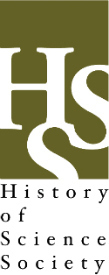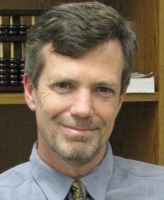
The History of Science Society (HSS) has arrived at the University of Notre Dame—a move that promises to benefit the society, the University’s History and Philosophy of Science (HPS) program and Notre Dame’s science programs by providing new opportunities for collaboration among society members, faculty and students.
HSS, which relocated from the University of Florida this fall, is the world’s largest society dedicated to understanding science, technology and medicine, and their interactions with society in historical context. The organization has more than 3,000 members.
The society’s work “fits into Notre Dame’s mission to cultivate an appreciation of human achievement while underscoring a desire to better the human condition,” says Robert Jay Malone, HSS executive director. “This way of thinking also motivates scientists, and so creates a common goal between the humanities and the sciences.

“By nurturing this shared objective, HSS and Notre Dame hope to create an atmosphere where science is seen as a personal endeavor and not an objective practice removed from context, devoid of emotion and biases,” he continues. “The history of science can serve as a kind of conscience for science, providing practitioners—as well as the public—with insights into how science operates and giving examples of where it has given comfort and where it has startled us into new ways of thinking.”
Don Howard, professor of philosophy and director of the HPS graduate program at Notre Dame, says he looks forward to partnering with the society to bring new conferences to campus, support future research, and give students more opportunity to learn from working scholars. Because HSS also serves the Philosophy of Science Association, he says, HPS will now benefit from having “the two biggest professional associations in the two areas central to our graduate program be housed at Notre Dame.”
According to Malone, HSS organizes the world’s largest annual meeting devoted to the history of science, which will help make “international scholars aware of the importance that Notre Dame assigns to the history of science.”
The society also plans on organizing colloquia where graduate students can present their work and polish their deliveries for meetings and the job market. In addition, says Malone, HSS’ comprehensive repository will expose students to the latest trends in the field. “For example, we are encouraging more poster presentations—a staple at scientific meetings—at conferences,” he says, “and I am hopeful that we can work with students to raise the number of such presentations.”
The society’s arrival “represents the real maturing and importance” of Notre Dame’s program, says Phillip Sloan, who currently is a member of the society’s Isis editorial board, a former elected council member of the HSS, recent emeritus member of the Notre Dame faculty for HPS and the Program of Liberal Studies, and a concurrent member of the University’s Department of History.
“Our HPS program is unusual in the landscape,” he says. “By requiring coursework in the history and the philosophy of science, it encourages a closer collaboration within the discipline. That was a founding vision of the program.”